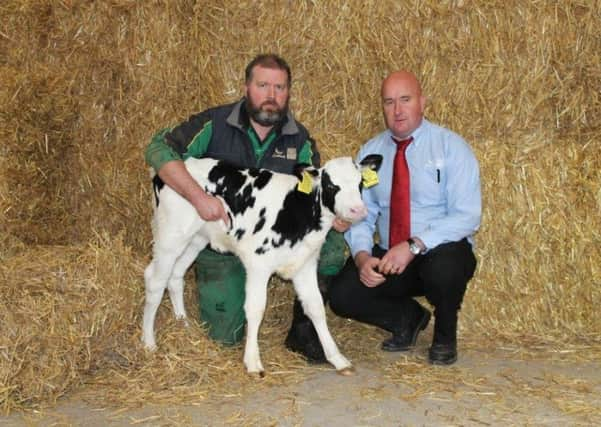Sexation semen maximises performance


The immediate question is: “How did they achieve this?”
Andrew Reid states that one of the major factors is control of the fertility and genetics in the herd.
He said: “We use the RMS (Reproductive Management System) from Genus ABS to manage breeding of the dairy cows and ABS breeder tags to manage heat detection on heifers. This means that the herd is monitored accurately for heat detection and AI’d at the optimum time. Improved fertility means more cows in milk at any one time which has a marked effect on profit margin.”
Advertisement
Hide AdAdvertisement
Hide AdHe continued: “Accurate heat detection in heifers with the aid of breeder tags has resulted in 51 of our 63 springing heifers being PD’d in calf to sexed semen (ABS sexation) this autumn. After two serves of sexed semen the remaining heifers are put in calf to conventional Holstein semen. This gives us a great boost in replacement numbers, which means that we will have high genetic merit heifers coming into the herd and also some extra to sell which is a useful cash crop.
“Sexation semen has brought several benefits to our dairy business. Number one is our ability to breed our next generation of replacements from our highest genetic merit females. This allows us to maximise our genetic improvement year on year, as we carefully select the traits in sexation sires that we wish to breed for, and which suit our system.”
Local Genus rep Gareth Bell said: “Andrew and Nelson, use the GMS mating program to maintain uniformity of type in the herd. As the herd is housed all year round, quality udders and feet and legs are key selection criteria for the herd. This is combined with high production goals to maintain the herd average of over 9,500 litres on 2x Milking. The GMS system matches sires with each cow in the herd to achieve the ideal genetic combination for the targets that the Reid partnership wishes to achieve.”
Indeed as the genetic merit of a herd improves farmers may have high genetic merit heifers to sell which can command a premium price, not only for their genetic merit but also for their disease status – coming from a closed herd. This is another factor that ranks highly with the Reid partnership - disease control – they wish to protect their investment in quality genetics and sexation semen enables them to maintain a closed herd and thus reduce disease risk.
Advertisement
Hide AdAdvertisement
Hide AdHaving had such great success with sexed semen over recent years, Nelson and Andrew continue to focus on maximising heifer calf numbers this winter. This year Sexed Seagull Bay MVP and Sexed Eildon Tweed Captain have been used. Captain is a Cashcoin son with a genomic production score of 765kg milk and 2.39 for overall type merit.
For more information on Genus ABS sexation sires and how the technology can benefit your dairy enterprise, contact your local Genus rep or the office in Portadown on 028 38 334426.